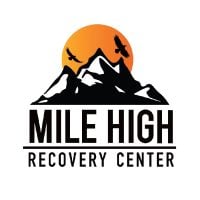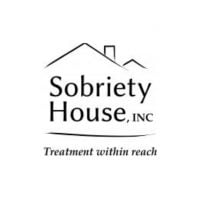Dry Creek Treatment Center
Drug Rehab Center in Denver, Colorado
- Opioid Addiction
- Dual Diagnosis
- Drug Addiction
- Alcoholism
Dry Creek Treatment Center in Denver, Colorado is a substance abuse and addiction treatment center offering comprehensive services and support to help individuals and families overcome addiction, including residential programs, mental health services, detoxification services, and continuing care.
About Dry Creek Treatment Center in Colorado
Dry Creek Treatment Center is a substance abuse and addiction treatment center located in Denver, Colorado. They offer a comprehensive range of treatment services, including residential programs, mental health services, and detoxification services. Dry Creek Treatment Center is committed to helping individuals and their families overcome substance abuse and addiction and provide an atmosphere of hope and healing.
Dry Creek Treatment Center provides individualized treatment plans, evidence-based therapies, and holistic healing activities to help individuals address the physical, psychological, and social factors associated with addiction and substance abuse. They also provide continuing care, which includes ongoing support to help individuals maintain long-term recovery. Dry Creek Treatment Center also offers family therapy to help families heal and reconnect during and after treatment.
Dry Creek Treatment Center is accredited by The Joint Commission and is licensed by the Colorado Division of Behavioral Health. They are also a member of the National Association of Addiction Treatment Providers (NAATP). Dry Creek Treatment Center has received multiple awards from the Colorado Department of Human Services for their excellence in substance abuse prevention, treatment, and recovery services. They are committed to providing quality, evidence-based care and have a team of certified addiction counselors working directly with individuals and their families.
Genders
Ages
Modality
Additional
Conditions and Issues Treated
With so many people addicted to opioids, we need to help those who want to quit. The cycle begins when opioid addicts take opioids for a painful injury. When someone starts taking their medication differently or in excess, it means they’re addicted and at risk of overdosing.
In , detoxing from these types of treatments is the most effective way to beat this. Most facilities begin with medical assistance and then provide counseling services; rehabilitation follows after successful treatment.
Levels of Care Offered
This center offers a variety of custom treatment tailored to individual recovery. Currently available are Aftercare Support, Drug Rehab, Outpatient, with additional therapies available as listed below.
Alcohol or drug addiction, or co-occurring disorders, are treated in an outpatient program. The patient must attend therapy and other programs at the facility but can return home each night.
Outpatient treatment allows recovering addicts to live at home while receiving addiction treatment. Outpatients can attend group sessions for a few hours per week. Outpatients may also continue to work full time and study/attend school without interruption if they choose.
The accomplishment of completing a drug or alcohol treatment program is just the first step. Once that is complete, aftercare support comes into play. This includes helping people adjust to life without substances outside of guidelines with assistance like getting sober living accommodations and career counseling and AA/NA programs for those who are struggling between sobriety or want continued help in maintaining it once they have completed their initial rehabilitation at an addiction facility.
Aftercare comprises services that help recovering addicts readjust to normal day-to-day activities while working on specific issues. These problems include psychiatric issues, family problems caused by substance abuse, continuing education pursuits if desired during rehab, etc. These can last up to one year+ depending on what’s needed most urgently upon completion of earlier stages.
Therapies & Programs
Different people react differently to various treatment options. Some drug rehabilitation centers offer individualized treatment that caters to the specific needs of a drug addict. The best treatment option varies on an individual depending on the type of drug abused, life history, medical condition of the person, social circumstances, and the environment they live in now.
When a person enters drug rehab, they usually have anti-drug associations such as withdrawal symptoms, stress, cravings, etc. The first step of drug rehab is to detoxify the body from any residual substances in it. Drug rehabilitation centers usually employ trained medical professionals to help in this process. Usually, the initial detoxification lasts for five days, where the person is monitored under close supervision.
Couples therapy is a treatment method used to help couples in which at least one member of the couple has a drug addiction. The treatment is designed to help the couple strengthen their relationship to minimize the effects of drug addiction on their lives and promote healthy communication between them.
Couples therapy can be used whether the addicted partner is using drugs or in recovery. It helps the couple create healthy communication and coping skills to minimize the problem-solving abilities of one partner, which can then be directed at solving issues related to their addiction. It also helps couples address problems that may be related to drug addiction. Couples therapy can help couples feel like a team and not feel like their partner is the problem.
Couples therapy is very challenging for both the drug addict and their partner. It requires an intense commitment between the two individuals to participate in the sessions and the homework assigned between sessions.
An additional benefit of couples therapy is that it can help make other types of treatment, such as 12-step programs, more effective.
Family therapy sessions typically involve the addict and their family members. During these sessions, a therapist will work with everyone involved to help them understand addiction and find healthy ways of coping without substance abuse.
Some addicts might feel embarrassed about their substance abuse problems. By encouraging family members to attend these sessions, therapists can show addicts that they’re not alone in dealing with addiction. Therapists can also work with family members to help them understand addiction and learn how to offer support and encouragement to their loved one as they deal with substance abuse issues.
Attending group therapy at Dry Creek Treatment Center in , is a useful way for those seeking sobriety to realize they aren’t the only one going through it.
This is when a group of people on different recovery phases get together and talk about what they’re going through, their triggers, successes, and failures. This can include alternative types of therapies too! Group therapy may occur on an outpatient or inpatient basis with groups that have no pre-existing relationships outside the session, unlike support groups where everyone already knows each other beforehand.
Additional Details
Specifics, location, and helpful extra information.
Denver, Colorado 80206 Phone Number(303) 794-1419 Meta DetailsUpdated November 25, 2023
Staff Verified
Dry Creek Treatment Center Patient Reviews
There are no reviews yet. Be the first one to write one.
Denver, Colorado Addiction Information
The Centennial State has slipped to a ranking of 12th in the country for drug abuse. Each year around 24% of the state's population uses illegal drugs while nearly 5% of its population abuses alcohol. Substance-related deaths in Colorado were responsible for 15.12% between 2008 and 2017. Fortunately, Colorado drug and alcohol addiction treatment are available to help a person overcome addiction.
Drug addiction in Denver, Colorado, is quite serious. In 2012, there were 974 drug overdose fatalities in the area, which has likely only gone up in recent years. The city has an estimated 34,000 marijuana users reporting past-month usage in 2016. The most common drugs abused are methamphetamine, heroin, and marijuana. Some popular treatment options include inpatient rehab, outpatient rehab, and detoxification programs.
Treatment in Nearby Cities
- Evans, CO (47.5 mi.)
- Lone Tree, CO (13.0 mi.)
- Hotchkiss, CO (161.3 mi.)
- Eagle, CO (100.0 mi.)
- Paonia, CO (153.1 mi.)
Centers near Dry Creek Treatment Center
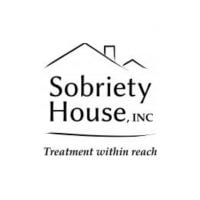
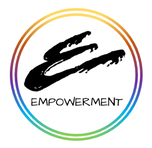
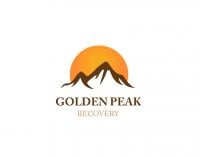

The facility name, logo and brand are the property and registered trademarks of Dry Creek Treatment Center, and are being used for identification and informational purposes only. Use of these names, logos and brands shall not imply endorsement. RehabNow.org is not affiliated with or sponsored by Dry Creek Treatment Center.

